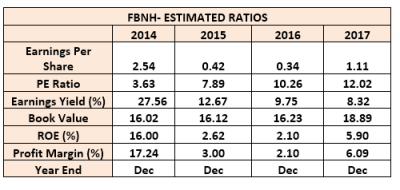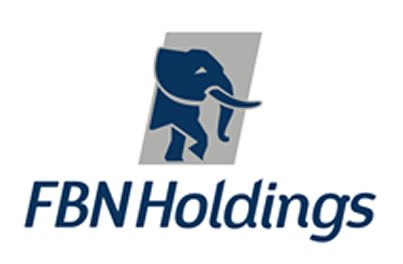The strategic repositioning of Nigeria’s oldest financial services group has started reflecting in its numbers as revealed by the half-year scorecard made available to the market late July2018 in line with post-listing requirements of the Nigerian Stock Exchange (NSE) and corporate governance.
The headwind that had rocked the company before transforming into a holding company arising from the increased loan loss provision in its books impacted its bottom line and payout. This, expectedly resulted to a free fall in the company share price on the NSE. An improvement in the group’s risk management has reduced the bad loan provision level, leading to a lower Non-Performing Loan ratio of 20.8%, compared to 22% in the corresponding period of 2017. This has led to improvement in profitability, and the corresponding uptrend in dividend payout, which has been duly acknowledged by investors through the improved share price.
Equally noteworthy is the improvement in asset quality and growing revenue from diversified sources, especially the stronger growth in non-interest revenue (NIR). Foreign exchange gains at N12.9bn representing 156% year on year growth, just as Net Fee Income at N35bn supported the 22% growth in NIR for the period. This could have been better, but for the dwindling interest rate regime and low yield environment, at a time the Central Bank of Nigeria (CBN) benchmark Monetary Policy Rate remained at 14%.
FBN Holdings’ 93 kobo Earnings Per Share (EPS) for the period is a replica of the price in 2.68x, which is lower than the 2.94x recorded last year, indicating the period for investors to recoup their investment at the current low valuation of the group share has reduced. The half year Book Value subsequently stood at N18.39 each. The marginal improvement in profit margin compared to last year’s is evidence of improved risk management efforts and cost efficiency, leading to a drop in bad loans provision.

To measure management’s ability to extract the more value from the group’s assets during the year, Investdata Research tested ratios such as: Returns on Equity and profit margin, which were high when compared to the corresponding period of last year. Equity multiplier was estimated at 2.68%, as against 2.94% last year; while Loan to Deposit ratio stood marginally above prior half-year’s.
We are of the opinion that management should explore more opportunities within its fields of operation. Specifically, we see more headroom in the earnings and profit space across its various business units, hence the need for more efforts to ensure the group’s assets sweat more rigorously. In doing so, we believe management should pursue target the premier spot across various parameters, without sacrificing efficiency.

Nonetheless, the group’s huge assets and rich human capital across its subsidies have really supported and reflected in the recent performance, confirming that robust earnings recovery is on track. This has been revealed in the released financials for 2014, 2015, 2016 and 2017.
The ongoing recovery in crude oil price will boost the group’s bottom line as its exposure to financing oil and gas business reduces. With the rise in oil price is expected to boost loan recovery and repayment of loans previously tagged “doubtful,” or “lost” and for which adequate provisions had been made from he P&L.
Investors should fix their gaze on the performances hitting the market from the group, as a result of which, for example, the Book Value has grown to N18.39 per share from N17.93 each in 2017. The valuation tools placed the bank’s stock at N20 each, representing a 125% discount to its market value of N8.90 each.

Four-Year Performance Analysis
Looking at the numbers posted by FBN Holdings over the past four years, it has been mixed performance as the group has grown gross income on a year-on-year basis from N480.6bn in 2014 to N597.76bn in 2017. Within the period under review the group had grown its income on the average by 54.16%.Regardless of the improvement in gross earnings, it is glaring that profit margin for the period was undulating to reflect the high cost of operations and its exposure.
The holding status of the company may have impacted its profit line, which is yet to reflect on its share price on the exchange. Rather, it has kept its price performance below market expectation for a long time now.
The low dividend payout ratio of the holding company reflects its earnings power, despite looking up in the last four years.The earnings account for 8.32% of the market price as at the released date. Thus, return on investment increased to 12.02x as earnings and price were looking up from 3.63x in four years as shown in the table above.
As in other key financial indices, Net Assets builds up on year-on-year as the oldest financial institution with strong assets base and customers. This is correspondingly responded to by the estimated Book Value that has grown to the current N18.89, which is above the market value of N8.90 per share.This had revealed the high margin of safety in the stock for long term investor.
Estimated Performance Ratios

The company’s earnings powers for the four-year period has oscillated as reflected on the movement in its earnings per share movement. The relatively large number of shares in issue which has weakened the Earnings Per Share (EPS) for the period under review. The amount Earned Per Share dropped from N2.35 in 2014 to N0.42 in 2015 which declined further in 2016 to N0.32 before rebounding to N1.11 in 2017. The unstable earnings within the period has marginally increased investors waiting period to 12.02x at the market value as at released date, from 3.63x in 2014.
Book value for the period as mentioned earlier has grown from N16.02 in 2014 to N18.89, which gives investors high safety of margin, considering the market price. Other performance ratios are rising, except for earnings yield, that is still looking down.
On the strength of the figures posted and consistent dividend for the past four years, regardless of the low cash dividend.
The stock is fairly valued at N20 per share.
Valuation
Looking at the Price/Earnings Ratio and Book Value of the stock, FBNH looks very attractive at the market value, as it currently trades at a ratio of 0.54x, representing a 45% discount to peers of 0.9x.
Meanwhile, the Book Value reveals an under-priced situation. Thus, each unit of FBN Holdings is fairly priced at N20.00 each, going by the numbers reported in the interim six-month results, full year EPS is projected to be in the region of 200 kobo.
Analyst Opinion/Recommendations
The stock looks good for traders and investors, especially at this time that the holding structure of the financial institution is changing for good, with foreign and domestic institutional investors increasing their stake.This has reduced price fluctuation in the stock, ushering in price stability. The need for repositioning is very necessary for competitive advantage within its industry and also to retain the confidence of depositors.
The management needs to be cautious in the kind of non-banking businesses it engages in. On the other hand, the management needs to concentrate efforts on strategies capable of building performance indices to ensure better numbers in subsequent quarters and years. This will definitely increase investors’ patronage, while driving price to new heights.








